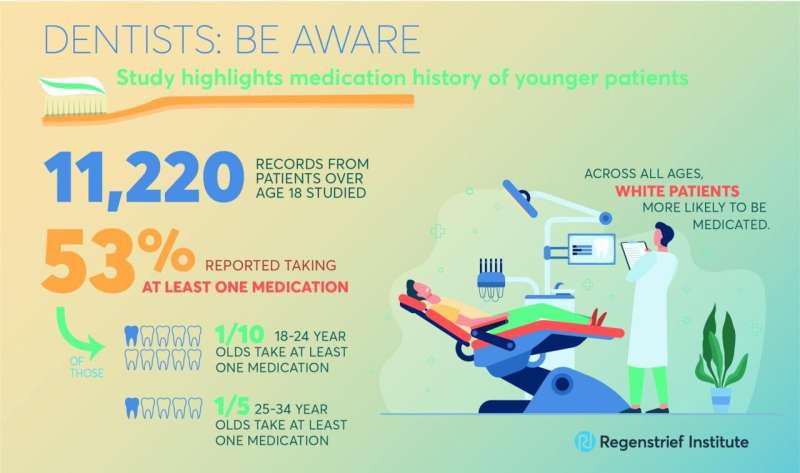Younger adults are taking medications that could affect long term oral health


A new study demonstrates that many younger adult dental patients are taking medications, and highlights the importance of dental providers reviewing medication histories, regardless of age.
The study from Regenstrief Institute and the Indiana University School of Dentistry looked at dental records from 11,220 dental patients over the age of 18. The results showed:
- 53 percent of all patients reported taking at least one medication
- 12 percent of those age 18-24 were taking at least one medication
- 20 percent of those age 25-34 were taking at least one medication
“The number of younger adults on medication really surprised us,” said senior author Thankam Thyvalikakath, DMD, Ph.D., director of the Regenstrief and IU School of Dentistry Dental Informatics Program. “Often dentists will assume individuals this age aren’t on medications, but these results underscore the importance of paying attention to medical histories of all patients, because medications can play a significant role in oral health.”
Younger adults were most likely to be taking antidepressants, which can cause dry mouth, and opioids, which carry the risk of addiction.
“We need to be aware of these possibilities, because dry mouth increases risk for tooth decay and tooth loss, and dental professionals should be proactive with preventive measures,” said Dr. Thyvalikakath. “In the same way, if someone is taking an opioid, we as dentists need to make sure we are not overprescribing these medications to that patient and possibly contributing to dependence or substance use disorder.”
The study showed that older patients were more likely to be taking medications to treat chronic conditions like high cholesterol, hypertension and diabetes. Across all ages, white patients were more likely to be on a medication.
In the future, Dr. Thyvalikakath hopes to develop and test an intervention to alert dental care providers about medicines and medical history because a more complete picture of a person’s health can lead to better care and prevention.
Source: Read Full Article